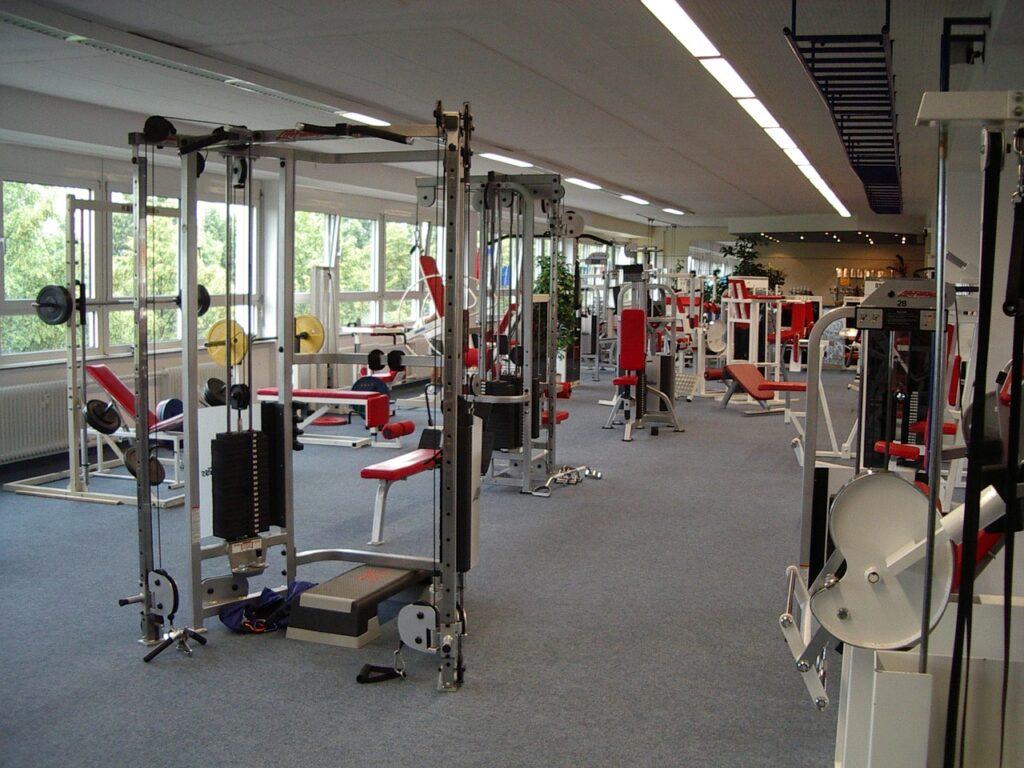Table of Contents
Can I Exercise While Water Fasting? Understanding Safe Practices
Water fasting involves foregoing all food and caloric beverages, relying solely on water consumption for a period of time. Venturing into exercise while water fasting naturally brings about questions concerning safety and effectiveness. A delicate balance exists, as the body endures different metabolic states and potential stress during a fast. While some forms of physical activity can complement the fasting process, others might pose risks depending on the duration of the fast and the intensity of the workouts.

It’s crucial to understand your body’s signals and the science behind fasting and exercise to navigate this practice safely. Gentle activities like walking or yoga can be beneficial when fasting, assisting with circulation and well-being without overexerting your body. However, metabolic adaptations can occur, and considerations such as dehydration and nutrition become pivotal. Consulting with healthcare professionals can offer personalized advice, ensuring that your approach to exercise aligns with the specific needs and goals of your water fast.
Key Takeaways
- Gentle exercises can complement water fasting if done safely.
- Understanding your body’s response to fasting is critical.
- Consult a healthcare professional for personalized advice.
Understanding Water Fasting
When you decide to embark on a water fast, you’re choosing to abstain from all food and drink except for water. It’s a type of fasting that can last from 24 hours to several days. One common variation is intermittent fasting, where periods of fasting and eating are alternated. During your water fast, maintaining proper hydration is crucial, as it is the only source of sustenance for your body.
- Dehydration risks: Be mindful to drink enough water to avoid complications.
- Health benefits: Some pursue water fasting for detoxification, weight loss, or improved metabolic health.
- Spiritual and religious practices: Many cultures include water fasts in their rituals, like during Ramadan.
Fasts like the 5:2 diet or dry fasting are alternatives to pure water fasting and have their own set of guidelines. The former involves eating normally for five days and reducing calorie intake for two days each week, whereas the latter eliminates all food and liquid intake for a short period.
Remember, the impact of water fasting varies with:
- Your physical health
- The duration of the fast
- Your preparation and approach to the fast
Before starting a water fast, it’s wise to consult a healthcare professional, especially if you have pre-existing health conditions. This helps ensure you’re approaching the fast in a way that is safe and beneficial for your individual circumstances. Keep in mind that everyone’s experience with fasting is unique, and your safety should always come first.
Water Fasting and Exercise
When you engage in water fasting, combining it with exercise can be beneficial but comes with potential risks that need careful consideration. Understanding how fasting affects your body during physical activity is crucial for maintaining your health and achieving your fitness goals.
Benefits of Exercising While Fasting

- Enhanced fat burning: When you exercise during fasting, your body may shift to burning stored fat for energy at a higher rate, which is a state known as ketosis.
- Improved insulin sensitivity: Fasting reduces insulin levels, which may enhance your body’s ability to regulate blood glucose, potentially making your workouts more effective during the fast.
Physical Activity Types:
- Aerobic Exercise
- Anaerobic Exercise
Risks of Exercising While Fasting
- Higher stress levels: Exercising while fasting can increase levels of cortisol and adrenaline, which can lead to added stress on your body.
- Possible muscle loss: Without proper nutrition, especially protein, there’s a risk you might lose muscle mass as your body seeks alternative energy sources.
Safety Considerations:
- Blood Pressure Changes
- Glycogen Depletion
Types of Exercise Recommended
- Low-intensity workouts: To reduce the risk of stress on your body, consider engaging in lower-intensity workouts like walking or leisurely biking.
- Steady-state cardio: Activities like jogging can be suitable if you are adapted to fasting and have experience with these kinds of exercises.
Exercise Duration:
- Shorter than usual
- Listen to your body’s signals
Guidelines for Exercising While Fasting
- Start slow: Begin with light exercises and gradually increase intensity based on your comfort and energy levels.
- Stay hydrated: Although you are not eating, ensure you consume plenty of water to prevent dehydration.
Post-Exercise:
- Rest appropriately
- Monitor physical recovery
Remember, while water fasting might increase autophagy — the body’s way of cleaning out damaged cells — it’s essential to tailor your exercise regimen to the fasting state and prioritize safety and self-awareness during the entire process.
Nutritional Considerations During a Water Fast

When engaging in a water fast, it’s crucial to maintain hydration and ensure the body gets essential nutrients. Strategic planning is key for both during the fast and when you reintroduce foods afterward.
Hydration and Electrolytes
Maintaining hydration is vital during a water fast. You need to drink plenty of water to prevent dehydration, which can lead to headaches, dizziness, and other health issues. Also, your body needs electrolytes, like sodium, potassium, and magnesium, to function correctly. These tend to deplete during fasting. Consider including an electrolyte solution in your water—but avoid any with added sugars or flavors—to keep these levels balanced.
- Drink: Aim for at least 8-12 glasses of water each day.
- Supplement: Use a pinch of salt or an electrolyte supplement if needed.
Managing Nutrient Intake
During a water fast, you’re not consuming protein, carbohydrates, or glucose from food, which are typical sources of energy and nutrients. To manage this, prepare your body before the fast by eating nutrient-dense foods. You can also support your body’s nutrient needs through careful supplementation. However, the way your body manages insulin and enters ketosis might change how you process vitamins and minerals, so use professional guidance when considering supplements.
- Pre-Fast: Consume a balanced diet rich in vitamins and minerals.
- Supplementation: Consult a healthcare provider for advice on nutrient supplements.
Refeeding After Fasting
Once you’ve completed your water fast, reintroducing food requires careful consideration to avoid refeeding syndrome. Start with small amounts of easily digestible foods, such as cooked vegetables and broths. Gradually reintroduce proteins and carbohydrates. Keep away from processed foods and those high in sugars, as they can spike your insulin levels and cause discomfort.
- Begin With: Light foods like broths or steamed vegetables.
- Progress To: More complex foods, including lean protein and whole carbohydrates.
Health Impact of Water Fasting and Exercise
When considering a water fasting regimen combined with exercise, it’s important to understand the potential impacts on your body. Your goals, pre-existing health conditions, and the intensity of the workout all play crucial roles in determining how fasting affects your health.
Weight Loss and Metabolism
Water fasting can lead to weight loss due to calorie restriction, while exercise can help boost your metabolism through increased energy expenditure. Though, during a water fast, the lack of calorie intake can potentially slow down your metabolism as your body tries to conserve energy.
Impact on Blood Sugar and Diabetes
Exercising while water fasting might improve your insulin sensitivity, which is beneficial if you’re managing type 2 diabetes. However, care must be taken as the combination could cause unpredictable fluctuations in your blood sugar levels.
Effects on Blood Pressure and Heart Health
Partaking in light to moderate exercise during a water fast can contribute to heart health by potentially lowering high blood pressure. But rigorous workouts without adequate nutrition might strain your heart, especially if underlying health conditions like heart disease are present.
Muscle Mass and Protein Utilization
Your muscle mass relies on protein and energy from food; without it, your body might use muscle protein for fuel. Conserving muscle mass can be a challenge during water fasting, especially if you engage in strenuous exercise that further increases protein demands.
Safety and Precautions
When considering water fasting and exercise, your safety should be paramount. Understanding your body’s signals, consulting with medical professionals, and recognizing special population considerations are key factors in minimizing risks such as dehydration and hypotension.
Listening to Your Body
Your body is an excellent communicator, and during water fasts, it’s crucial you pay close attention to what it tells you. Be vigilant for symptoms of dehydration, which can include dizziness, dry mouth, extreme thirst, and less frequent urination. If you feel weak or lightheaded during exercise, it’s time to stop and rest.
Medical Supervision and Health Conditions
Before starting a water fast, especially with exercise, consult a healthcare provider. They can guide you based on your individual health status and recognize if you have conditions like hypertension or hypoglycemia that could be exacerbated by fasting. Always keep your medical professional informed about the medications you’re on, as water fasting can alter how your body processes them.
Special Considerations for Certain Populations
Certain groups should approach water fasting with more caution or possibly avoid it altogether. If you’re dealing with a condition such as an eating disorder, have issues related to overweight or obesity, or if you are currently breastfeeding, the risks might outweigh potential health benefits. Likewise, children, those with cancer, or anyone with a history of nutrient deficiencies should not undertake a water fast without medical approval.
Lifestyle and Fasting
Integrating fasting into your daily routines and understanding its synergy with your dietary patterns can support a healthier lifestyle.
Incorporating Fasting Into Lifestyle
When you consider introducing intermittent fasting into your lifestyle, it’s important to align it with your personal goals, whether that’s fat loss, improving overall health, or reducing inflammation. Remember, fasting isn’t a one-size-fits-all solution; it should fit comfortably with your other commitments. Here’s how you can start:
- Start Slowly: Begin with shorter fasting periods and gradually increase as you feel more comfortable.
- Stay Hydrated: Drink plenty of water throughout the day, which is crucial when you’re not consuming food.
- Listen to Your Body: Pay attention to how you feel during your fasting period. If you experience signs of an eating disorder or nutrient deficiencies, it’s essential to consult a healthcare professional.
Dietary Patterns and Fasting
Fasting can be a part of a healthy lifestyle when combined with mindful eating. Here’s what to consider regarding your food choices:
- Quality Over Quantity: Opt for whole foods over processed foods, focusing on the quality of the food you eat during your eating windows.
- Mediterranean Diet Model: Incorporate principles from the Mediterranean diet, rich in fruits, vegetables, lean proteins, and healthy fats.
- Detoxification: Some believe fasting can aid in detoxification; however, this process naturally occurs in your body. Aim for a balanced diet to support these natural functions.
- Weight Management: If you are aiming to lose weight, pairing fasting with a nutritious diet can potentially amplify weight loss results while maintaining the integrity of your immune system.
By understanding how fasting works in tandem with your lifestyle and dietary patterns, you can make informed choices that contribute to your health and wellbeing.
Mind and Body Connection
When you engage in a water fast, the interplay between your mental state and physical health takes center stage. This connection can influence your experience profoundly during the fasting period.
Stress and Mental Well-being
Fasting can be a stressor on your body, but it also has the potential to foster mental resilience. Your body typically adapts to the absence of food by entering a state of ketosis, which can lead to a sense of clarity and focus for some. However, it’s crucial to monitor your stress levels, as excessive stress might impact your overall health negatively. Employ relaxation techniques such as deep breathing or meditation to support your well-being during the fast.
Spiritual and Religious Aspects of Fasting
Water fasting often holds significant spiritual and religious importance. For instance, during Ramadan, the fast is a time for spiritual reflection. Regardless of the reason, such fasts can provide a sense of spiritual renewal. It’s widely believed that this can lead to enhanced mental well-being. Remember, your journey is personal and engaging with spiritual practices can encourage a sense of peace and connection during your fast.
Frequently Asked Questions
When considering exercising during a water fast, it’s important to understand the impact it can have on your body. Here, you’ll find answers to some common queries about combining exercise with water fasting.
What are the potential benefits of exercising while on a water fast?
Engaging in light to moderate exercise during a water fast may improve your mental clarity and contribute to fat oxidation, but it should be approached with caution.
How might water fasting for an extended period, such as 21 days, affect my workout routine?
During an extended water fast like a 21-day fast, your body’s nutrient stores are depleted, and energy levels may decline significantly, potentially necessitating adjustments to lower the intensity and duration of workouts.
Can physical activity help enhance weight loss during a water fast?
Physical activity may help enhance weight loss by increasing calorie expenditure; however, it is crucial to ensure that such activity is not strenuous to prevent muscle loss and fatigue on a water fast.
Is it safe to engage in high-intensity exercises while undergoing a water fast?
High-intensity exercises are not recommended during a water fast due to increased risks of muscle breakdown, dehydration, and electrolyte imbalance.
How does a 7 or 72-hour water fasting period impact the body’s ability to exercise?
A shorter fasting period like 7 or 72 hours may allow for some exercise, but it’s vital to listen to your body and recognize signs of overexertion.
What precautions should be taken when running during a water fast?
When running during a water fast, stay hydrated, avoid long distances, keep the pace gentle, and be prepared to stop if you feel dizzy or light-headed.

